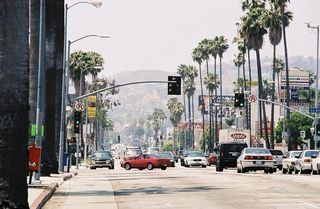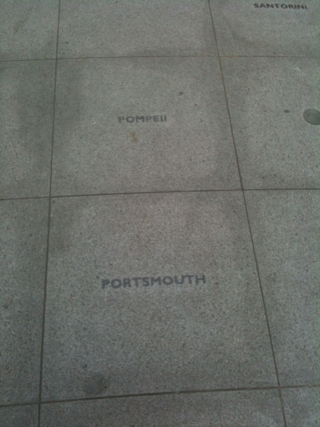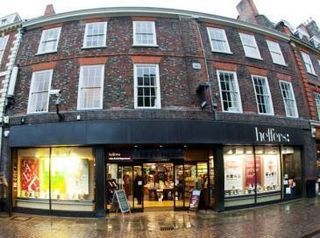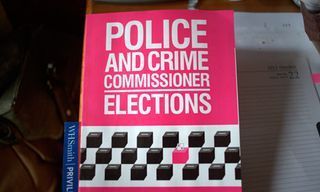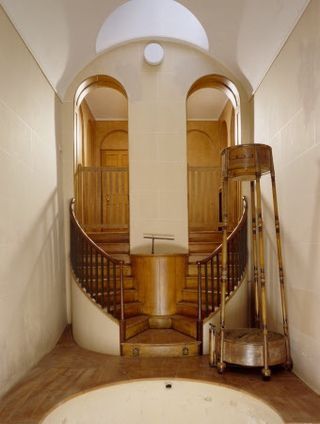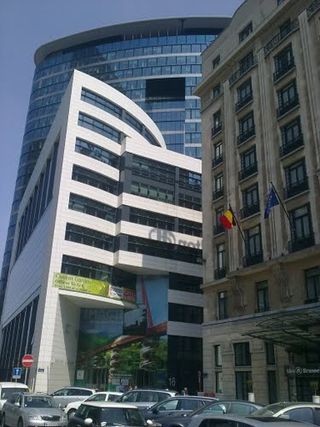Mary Beard's Blog, page 50
November 21, 2012
Confronting the Classics
I havent actually confessed yet that I am putting together a choice selection of essays and reviews to come out next Spring from Profile -- almost certainly called Confronting the Classics (we've been through quite a lot of titles and that one seems to please the most, and to be faithful to the contents). And barring an afterword and preface and linking passages (OK a good couple of days work there, but never mind).. I've finished and pressed the button about five minutes ago.
Have a foul cold (caught on the airplane to Los Angeles, how else?) and am more knackered than I like to think... but I can sort of tick the job off. (I count ticking the job off as reaching the point where if you dropped down dead someone woud be able to finish it and still put your name on the cover).
What's amazing is that, even with something approaching a compilation, it still takes ages and ages to get done. Think of a number of weeks, then treble it.
I mean I guess you could just take the essays and publish them as they stand. But I dont think I'd be able to live with that. That's partly because when you put them all together you suddenly discover that there are tiny inconsistencies you never noticed, or that you used the same anecdote twice over (it didn't matter much when the pieces were 15 years apart, but when they are now 20 pages apart, it does). So you try trimming and exising, but as soon as a few lines have gone, you ending up having to rewrite a lot more lines...
Then again when in 2005 you said that something hadnt been discovered, then in 2006 it was... well you cant just leave it be, can you?
Overall, I'm feeling, quite happy with the rewrite. The aim has been to take readers into some of the fun and the debates and the controversies of current classical discussions... without assuming too much pre-existing knowledge (the essays range from how difficult it is to understand what Thucydides is actually saying, through what happened on the day of Julius Caesar's murder, to what Asterix is trying to tell us, with lots inbetween...Sappho, Alexander the Great, Hannibal, Roman Britain, Paddy Leigh Fermor etc ). But that's enough of an advert. Hope you'll enjoy it when it comes out.
And I wont forget the work. There's no such thing as an easy book to write, however much you think you've already written it. I remember when Simon Price and John North and I decided to write Religions of Rome. It was all going to be so easy. We'd already written a series of essays on Roman religion for the Cambridge Ancient History. All we had to do was put them together with some linking sections, and add a book of sources to illustrate the main narrative (oh yes and translate them ourselves).
Simple eh? Six years (and no major arguments) later we'd nearly finished.
Glad we persevered, mind you.
November 17, 2012
Sunset Boulevard and the eco-police
It is always, in a way, a mistake to go to a conference in the middle of term ... all the more so when that conference is on the other side of the planet. But when you say 'yes', it's months in advance, and you somehow fantasise that it will be a nice little break in a slightly warmer climate. At that point, you havent quite worked out that it will mean almost as many hours in a plane as you are at the conference.
So here I am again in Los Angeles, writing this at 5.00 am (and trying NOT to adjust to California time, made more difficult by the fact that all a cabin crew want you to do on a long flight is go to sleep: more booze, lights off, blinds down, heating up -- and you're out for the count).
But in this case the conference really WAS irresistible, because it is all connected with an exhibition at the Getty Villa on the modern legacy of Pompeii. I had had a bit to do with the early plans for the show, and if I didn't come now, I would miss it entirely. Besides I am not down to give a paper,but to "respond" at the end of the day. (In truth an ambiguous advantage: it means you dont have to write a paper, but it means that you have to stay awake and sharp -- so you have something worthwhile to say. No dropping off, Beard.)
And the truth is that, if I keep awake, I really shall enjoy the TexMex and the Margharitas tonight, seeing my friend Helen who's coming from Santa Barbara specially, and tasting a bit of Californian style.. even if for only a few hours. The hotel I'm in is already a good start -- "environmentally friendly" gone engagingly mad. I mean not just the usual (sensible) notice in the bathroom about using your towel more than once, but also a rather stern list on instructions left on the pillow about refilling your own reusable bottle of water from the tap, and turning off the lights when you are out of the room, etc.
All of this is absolutely right, and it's what I would do anyway ("turn the bloody lights off" having been drummed into me in the womb). But -- counter-suggestibility again --when I see the rules all written down and left on my pillow, even I start to feel like turning the aircon up to maximum, and going out for the day. Or even marking myself out as a self-confessed eco-criminal by prominently displaying the "Daily laundering requested" notice.
I bet if you did that, you'd find a leaflet on your pillow the next morning explaining the error of your ways!
(PS I have just found another notice in the bathroom, to assure me that if I I'm good and dont have mt sheets laundered each day, they will "air fluff" them instead... now what do you think that is?)
November 14, 2012
Prize Givings
You know you are getting to be an elderly academic when you start getting asked to give out prizes at school (to be honest you also know that you are thought of as someone who might go down well, might give a decent mini-speech and not be wholly ridiculous in front of the kids and Mums and Dads .... "elderly but a bit sexy" seems to hit the nail on the head).
Anyway I went to Swavesey Village College on Monday, where I had a great time and is obviously a great school (well done to everyone there!). But this brought back all those "speech day/prize giving memories" from way back.
I said to the audience on Monday that I didnt remember anything that had been said at any of the occasions I attended as a kid. That wasnt actually quite true. I do remember when John Ferguson (who was Professor of Classics at the OU), and he gave a tub thumping left wing speech to the rather proper burghers of Shrewsbury, ending up with "No Man Is An Island"... which I of course loved. But I thought it might all seem a bit pious in the early 21st century (young Beard thrills to John Donne), so I drew a veil over it.
I did mention one speech though, that I heard at my son's school about 15 years ago...
... totally memorable and awful. It was given by the scion of a local engineering firm (not an elderly academic), and his message for kids an parents was (I kid you not) that "we should all learn to love the A14"... that is the ghastly overcrowded, accident ridden highway that links Cambridge (at horrible cost) to the M1 and M6. I was such a pushy parent that I was moved to write to the head and query how comptaible Mr X's speech had been with the school's environmental teaching.
I guess I feel a bit more sympathetic to Mr X now, as it can be hard to get it right.
I've done a few of these now and have come to see that it is high risk.
I went many a year ago to Sevenoaks, not to present the prizes actually, but to talk to some similar celebratory occasion for the sixthformers only. I did what a thought was quite a snazzy little number (though what it actually contained I now havent a clue), and was enjoying myself mingling afterward... when I overheard from the other side of a large potplant (vel sim) the headmaster talking to the teacher friend of mine who had invited me.
"I'm so sorry that Mary let you down so badly" he was saying. You cant win 'em all I guess.
November 9, 2012
WORLD at New Broadcasting House
I fetched up this morning at the new wing of Broadcasting House to do my Point of View recording (just next to the Old Broadcasting House and where most of the outlying bits of the BBC are gradually being  brought in). It was the first time I had been there in daylight . . . and the first time I had had a good look around.
brought in). It was the first time I had been there in daylight . . . and the first time I had had a good look around.
Parts of the building are extremely elegant, and there are wonderful vertiginous vistas through glass from upper floors to the ground. And it's a great match for the old Broadcasting House. What is more, good or bad, anyone who think that BBC staff work in the lap of spacious luxury could well take a look round the packed "open plan" offices. (Not sure who chose the carpets though...some of the retro orange was a bit blood-curdling.)
But what caught my eye even more was the art work in the piazza outside. It's called WORLD by Mark Pimlott, and it is simply a series of lines of latitude and longitude set in the pavement, plus a series of place names.
Sounds silly?
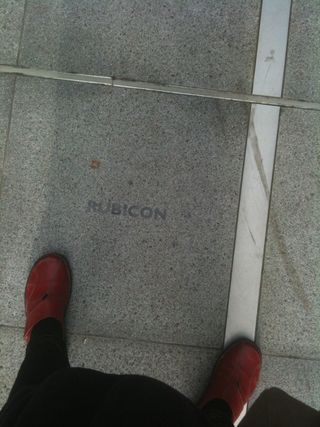
Well it might do, but actually those place names were intriguing and entrancing. Not just which place names had been chosen to evoke the world (and to evoke, I suppose, the idea of "nation speaking unto nation"), and which place names had been chosen from history.. but also how they were nicely juxtaposed. What was put next to what.
I was pleased to find Pompeii represented, next to Portsmouth (didn't quite figure that), and Rubicon (one of rather few rivers)... and Troy next to Agincourt (battle sites?)...and Bhopal next to Aberfan (human disasters with a sense of industrial culpability). And so on.
It's one of those neatly simple ideas that works partly because it is so simple, and because it joins the familiar with the strange, and makes clever choices from the past. A bit like the way the names of all those movie stars work, set in the Hollywood pavement.
Needless to say the BBC bashers had had a go -- I discovered from a speedy web-search -- about wasting the licence-fee on this kind of thing. But the fact is that you dont get planning permission for a big project like this new Broadcasting House without putting a substantial amount of money into associated "public art". Which is what this is. (Though come to think of it I don't see why they couldn't have had a statue of George Orwell too...)
November 7, 2012
Thank heavens I don't live in Ohio, or get tweeted by David Cameron
I heard sometime in the middle of the night (we'd left the radio on) that Obama had probably won... then a bit later that he really had won, Romney had conceded etc. I went back to sleep with a certain pleasure, or rather relief that I wouldnt have to be living on planet Romney.
And this morning it is hard to forget the lingering pleasure. Even "Thought for the Day" was an Obama broadcast. (I wondered what the nice rabbl would have said if Romney had won... did he have two scripts ready? Or did he write it all in an hour? You can listen here.)
So joy all round, but not without a few wry reflections.
First, what is it about American politicians that means they have constantly to bang on about how the USA is the greates nation in the world? In truth Obama's 'accession speech' (as the Romans would have called it) had some good bits in it, as those speeches go (democracy being messy etc). But it still had quite a lot of the 'top nation' stuff. Doesn't any one of them ever reflect what the criteria are for the world's greatest country? (I mean, why not Norway?) And that maybe part of the trouble in the world is that Americans are being brought up constantly being told that they are the greatest, simply by being American? (Usually -- as with the Roman empire -- top nation actually means, as Obama came close to saying, 'most fire power'... and that certainly excludes Norway.)
Second, isn't the electoral college thing weird? I spend hours each years explaining the Roman assembly system to students, how complicated it was, how it (either de iure or de facto) gave more weight to some voters than others. Usually I only half succeed, and they end up looking somewhat baffled by this strange version of "democracy". I think in future, I'll start with the USA.
But it all makes you think what hell it must be to be one of those privileged voters who matter.. I mean those who live in a swing state. When I was in Berkeley four years ago, during the first Obama campaign, and renting a house from a registered democrat, I was driven crazy by the democrats' constant phone calls, and that was in California for heaven's sake. Just imagine how you get battered if you live in Ohio? Must be a voter's hell. (I've complained here that the local candidates pay the average voter no attention whatsoever; the reverse must be yet worse.)
The final thing was the idea (told us with a straight face on the Today programme) that David Cameron had tweeted his congratulations to Obama. Now you would have thought that Cameron had learned his lesson about social media... but I guess that in the tweet department, it isn't him actually doing it, but some Downing St tweetmaster who see Obama getting elected and does his master's tweet business for him. But whatever -- great fan of Twitter that I am -- I dont actually much want it to be used to communication messages of state in 140 characters. Not exactly Twitter's job.
(Oh not quite the final thing.. eventually the news got found to telling us about all the other changes the US electorate had voted in, like the legalisation of the recreational use of marijuana in Colorado -- which should help the Colorado tourist trade buck the recession, if some Federal agency doesnt put a stop to it.)
November 3, 2012
A day at Heffers.
It's not really clear what is going to make a bookshop successful into the 21st century against the competition of Amazon etc. There was the rush to the "in-store coffee shop" a few years ago, but that didnt save Borders. And anyway the coffee shop is always going to take up space where you might have books, and that is the beginning of the slippery slope.
It's probably a much better idea to move in the Literary Festival direction. I have done a number of bookshop events of that sort (including some great events at Bookmark in Spalding and Topping of Ely). But today Heffers did a whole day Classics festival, which was free and booked out. In fact the ting had been so popular that they had to move it to the Union Society to fit more people in.
This is not the place for me to put the record on about inportant local bookshops are. OK I use Amazon sometimes, but if we all buy all our books from Amazon, we'll wake up one day and find we dont have a local bookshop.. and we wont like that.
This day I think was a great advert.. and lots of books were sold, and fun had.
I did a few short gigs during the day (the idea was not to have hour-long lectures, but short contributi, that might spark of wider discussion). There was 15 minute slot in the morning in which I tried to sum up why Classics was important (the "if you were to cut it off, you would leave Western culture as a bleeding torso" line); and again in the afternoon I took another 15 minutes to think about Classics and television (pluses and minuses, recon vs no recon, to CGI or not... etc).
There was a great cast, including my colleague Paul Cartledge, Tom Holland (en route to Newcastle for an event with Mona Siddiqui), Caroline Lawrence packing in the kids.. and loads more. We ended the day with some of us (inc Michael Scott) picking a couple of book recommendations. I decided to play a straight bat and pick two ancient texts: the Penguin translations of the Odyssey and of Petronius' Satyricon.
The point about the Odyssey is, as I said at the event itself, you can pick it up and read it cover to cover. The Iliad is great, but you would have to skip bits (like Book 2). (OK the truth is that you have to skip some of the Satyricon too, but the Trimalchio's Feast bit is just so brilliant...)
The funniest bit of the day was a shop "signing session", in the middle of Heffers main store. These signing are always worth it, and you meet all kind of interesting people (which I did.. including some undergrads I didn't know; nice!). But they also bring you face to face with the business of selling books and selling yourself. Being in a great bookshop, in what is now I guess the run up to Xmas, I sat there thinking that I should be shouting "come on everyone, 3 for 2, Xmas presents solved, signed copies"... but something stops one! (Thank God, maybe)
October 31, 2012
Who shall I vote for -- as a Police and Crime Commisioner?
Most of us have forgotten (or never noticed) that we have elections coming up for our "local" police and crime commissioners on November 15. I have never honestly been convinced that the election of a (well paid) P&CC will do much for the democratic deficit in policing policy.
In fact -- problems though there may have been with the old local Police Authorities, now being abolished -- they seemed quite democratic enough for me. The majority of members after all were elected councillors, and the fact that they were a group of people rather than an individual meant that they could easily represent different interest groups within the local community, and different areas within the authority.
Besides, I'm not sure I like the idea of my Chief Constable being sackable by a single elected official (as the info websites seem to imply, but I can't quite believe is true). And I am fairly certain that we shall not be paying any less for the new "men" (and they will mostly be men) at the top. Look, for example, what is happening in Devon and Cornwall, where there has already been a c£50k a year job advertised for a media manager for the lucky new P&CC.
Anyway, my choices now are between a) vote for one of the candidates in Cambridgeshire; b) spoil my ballot paper (on the grounds that women should always vote in some form, to give thanks to those who gave us the vote); or c) just tear it up when it comes through the door.
The local candidates, I have to say, are not a particularly inspiring bunch.
First, there's not a single woman amongst them (as against 7 women out of 16 on our current Police Authority). As for the guys, well . . . . it takes a bit of a websearch to find the information. There is one website called policeelections but only two of the seven candidates in my area has entered info on that and, so far as I can tell, they are the ones further to the right than the Tory candidate. One claims that he is going to purge the force of "political correctness"..."Politically Correct social engineering projects or excessive harassment of motorists as an easy target to enable Chief Constables to claim inflated clear-up rates... I also intend to seek a mandate that every police station should fly the Cross of St George". Honest!
ChoosemyPCC does have something about the whole line-up. And we can see happens if we go a bit more to the centre.
The answer is that we find the policing equivalent of cliché, motherhood and apple pie. Some candidates to be sure are a bit better than others, but all are offering platitudes -- along the lines of local accountability, of cutting crime (why bother to say it? do we think that any of them were for increasing crime...?), of putting victims at the heart of policing, of giving value for money, and so on. I got quite interested for a while in Ansar Ali, but after looking at the pics on his own promotional website (some of which were as remote as snaps of a St Ives fund-raising event in 1999), I quickly lost interest again.
Part of the problem for me was that, out of the 7, all but 1 were from Peterborough --which has quite different policing issues from Cambridge. The odd man out is probably the one I would go for, if pushed; but like so many of these candidates across the country he is an ex-local councillor (we also have a defeated ex-MP on offer) and you can't help thinking that this shouldnt be a job for the "ex". Frankly I would rather the current councillors, as we have on the Police Authority.
I still haven't made up my mind. I don't honestly think I can cast my vote for any of this lot, and certainly wouldn't want them to have hire and fire control over the Chief Constable (for heaven's sake, policing decisions are difficult and don't get any easier if reduced to the sort of slogans we have in their manifestos). If I thought that spoiled ballots would be large enough in number to be noticed, that is what I would do. But maybe the best way of saying a plague in all your houses is not to vote at all, as Ian Blair suggested. He didn't get much support (and I take the point about letting in the extreme and the mad that way), but now I have looked at the candidates I see his point. Democratic control isn't just about having an election, it's about having good candidates to choose from for a worthwhile job.
It'll hurt me though. I haven't failed to vote since I got given the damn/precious right to do it.
(And when by the way did we decide on the SV system of voting? Did I miss something?)
October 28, 2012
Wimpole Hall and the buggy disinfection unit
One side benefit of having young kids is that you sometimes have to do something else other than work at the weekend. That may be a rather rosy-tinted view of time management with toddlers and a job -- but there is something to be said for being forced to load the nippers into a car at the weekend and take them out to see something improving/fun (for a start, it means that you get to see it too).
Once that stage has gone, for me at any rate, weekends get entirely taken up with work just like any other day of the week -- unless you have someone to stay. And then you can go out to see "something improving/fun" again. Which is what we have just done, with our South Sudanese friend Samuel, who is here to stay.
 In fact we have gone to the local stately home, Wimpole, which has a Home Farm and Rare Breeds Centre where we often used to go with the kids 20 years or so ago.
In fact we have gone to the local stately home, Wimpole, which has a Home Farm and Rare Breeds Centre where we often used to go with the kids 20 years or so ago.
Now the last time I went to a local National Trust stately home (Ickworth...I'm not including Roman Chedworth here), I was pretty incandescent; and said so pretty frankly on the blog (I couldnt stand the faked up kitchens). So credit where credit is due, let me say that Wimpole Hall was almost faultless in touristic terms.
It's a great house, partly done over by John Soane in the late eighteenth century -- and he put in the most wonderful plunge bath (above, the view from the bath!) and a stunning "Yellow Drawing Room". They'd be worth the trip on their own (built for the filthy rich or not, they are ace).
But more than that, the whole display got it just right. These I reckon were the touristic/heritage plus points:
1) There weren't any "dont sit on the chair" signs. When they didn't want you to sit down on something, they had just put a bit of pot pourri (vel sim) on the chair, and you got the message. 
2) In the great Yellow Drawing Room -- the Soane bit -- the ceiling and dome are fantastic, but you do need to look up. So there were some rough old cushions on the floor, and you could lie down and do just that. So messing, no signs saying "lie down here".. again, you saw the cushions and got the point.
3) In the Long Gallery -- used as a ballroom -- there was music. You heard it as you approached, and rather assumed it was piped. Actually when you arrived there was someone playing the piano, real live.
4) The volunteers in the rooms were all spot on, by which I mean they knew their stuff and quckly recognised when you knew yours. I cant bear going to those places (and the National Trust can be bad at this) where you ask about some image of (say) Artemis on the wall, and you get treated to the pre-prepared lecture on ancient gods and goddesses being different from "our" God. You can't be nasty and say "Look sunshine, this is what I did my PhD on", so you shut up and get to feel crosser and crosser. At Wimpole, none of the volunteers treated us to a lecture on what we knew about, and all were helpful on what we didnt.
5) When we got upstairs to a room about the history of the house, they had printed out, and bound, some of the key articles on the place from Apollo and the Burlington Magazine etc, so you could sit down and read. OK, someone might in theory have walked off with them -- but in practice who would (and so what)?
6) Most of the stuff in the now regulation "downstairs" area also appeared to be from the house itself. As I said, the thing that really riled me about Ickworth was that most of the kitchen stuff on display to reconstruct the authentic atmosphere seemed to have been bought off ebay. That was true of some of the kitchen display at Wimpole (I dont believe that the last occupants left the packet of Lux flakes behind). But there were some surprising bona fide items. We looked suspiciously at a large pile of suitcases, but indeed they did carry the label of Elsie Bambridge (the last, pre National Trust owner).
Pretty much full marks I thought. The attached Home Farm was a bit of a different story, however -- but also with its definite plus points.
When we went, often, with the kids a couple of decades ago, it was rather like a zoo. In fact they had a number of compliant animals apparently roaming free (I always assumed heavily sedated) which the under fives were encouraged to pat and fondle. Those have gone, to be replaced with a different version (positive in some parts, negative in others) of public engagement.
On the minus side, I have never seen more notices telling you to wash your hands (after handling the animals).For someone as counter suggestible as me, it was a positive invitation to put my hands on the rear end of a shire horse and then to go off and eat my sandwiches, entirely unsanitised.
But the reductio ad absurdum was the hygiene regime at the end, where families were asked to wheel their buggies through a disinfectant carpet (which looked as if it had been left over from the last foot and mouth outbreak)-- presumably to remove any trace of the germs of the shit, before getting back  home.
home.
On the plus side, they were gratifyingly frank about the destination of most farm animals. Gone were the days of the zoo and in had come the days of "This Little Piggy Went to Market". These, many signs insisted, are the animals we are going to eat, and there were convenient diagrams to show you which bit of the animal ended up where.
And in case you didn't quite believe it, the shop sold sausages made from the mums and dads of the pigs you had just seen. And beefs from those amazing bulls. A nice dose of realism, I thought, as I bought the beef.
But I did wonder what the narrative of the vegetarian visitor would have looked like.
October 23, 2012
The accessories of travel
I am in Brussels for a week, grading ERC fellowship applications. Do not for a minute imagine that this is a glamorous jaunt, enlivened by evenings of moules frites and Belgian beer. The working day "at the office" (above) is 8.30 to 6.30 ish, and the evening is spent in the hotel room doing the prep for the next day, with a room-service pizza or lasagne. Haven't been within a spitting distance of a restaurant since I arrived (though we are all going to a dinner at the Crowne Plaza tonight for a "social" -- €37 each, including two glasses on wine each, if you want to know the details of ERC hospitality and uprightness: it's no gravy train).
Anyway, this regime has given me ample opportunity to reflect on what I carry with me. Leaving aside the tootbrush and a couple of spare pairs of leggings and tights, it's all electronic AND TANGLES OF FLEXES.
I've got the laptop, and the mobile phone, a camera (in case I want to immortalise the "social") and a kindle (in the unlikely event of having five minutes to spend with Hilary Mantel). OK, none of that is too bulky, but each one has to have its flex and plug into the eletricity source, or its battery charger. And each one needs an adaptor to a Euro-style socket. (And I dont know if anyone else has noticed this, but euro adaptors come in two slighty different sizes, with slightly thicker or thinner prongs -- and the slightly thicker ones can be next to impossible to jam into slightly thinnner sockets. Result: to be on the safe side you need more adaptors than you think.)
Anyway, what this means is the my hotel room is filled with plastic all over the floor, and my shoulder back carries half of it to and from the office each day.
I fell to thinking, when I could work no longer last night, that someone would soon invent a way of accessing a power source that didn't need all this stuff; or at least some "one size fits all" solution, so just one connector and device would do for the lot.
If I'm doing this in ten years time, I imagine that a hotel room full of wires will seem as reminiscent of early twenty-first century travel, as poste restante or the "trip to the local telephone office" is reminiscent of travel in the 60's and early 70s.
Do you remember those strange offices with numbered phone booths all around the walls. You would go in and book your call (to your Mum and Dad in my case) and then would wait to be called to a booth when the call had come through. Not quite sure how you paid. Perhaps it was all done "reverse charges".
In comparison with that rigmarole, mobile phone and flex seems a small price to pay (or to be more accurate, for me -- who has no sense of control where international calls are concerned -- a large price to pay).
October 21, 2012
Sometimes secrecy may be no bad thing.
I caught a snatch of Any Questions yesterday; someone (I think it might have been Sally Bercow) was saying words to the effect of "transparency is always a good thing" -- presumably in the context of whether Prince Charles's letters to government ministers should be made public.
I am not sure what I think about that partcular teaser. My gut reaction is to think that even people in power ought to be able to write things to each other that aren't automatically made public. If they cant write it down for fear of disclosure, they'll do exactly the same business on the phone or over dinner and then no evidence will be left and no-one will ever know.
But what really struck me was how people get fixated on the "right to know", at the expense of much bigger and more important questions. If we are going to have a king -- then I guess I'm prepared to let him, when heir to the the throne, write to government ministers privately. I'd much rather that people got worked up about whether we should have a king at all, or at least whether the structures of the monarchy as now defined deliver to us what we want. Just knowing what he wrote doesn't make a blind bit of difference to that big issue. You'd never actually be able to pin any decision to his influence anyway.
I've fought for disclosure on all kinds of things, and information that the powers that be think we cant be trusted with. And just after the final Hillsborough revelations, it's probably a bad time to be writing this. But, unfashionable as it is to say, we do appear to have forgotten that sometimes not knowing things can actually be useful. Some things are usefully confidential.
It always strikes me at this time of year, when the uni applications for next year have come in. In days gone by (presumably back in the Dark Ages before the data-protection act), the school references for candidates were confidential, between the head and the university; the kids didnt get access to them. Now they are entirely open to both the applicant and their parents. And they are much less useful in the selection process, for obvious reasons.
I know all the good motves for the change (apart from the long arm of the data protection act). The relationship between pupil and school should be such that nothing that is said should come as a surprise to the applicant. If there are mistakes in the reference, then it is only right that the kid should be able to correct it. Etc etc. In fact, when I got my job aged almost 30, back in my old college, one of the first things I did was rummage through the old files and dig out my head teacher's reference.
Now I dont want to sound as if I don't value the hard work that teachers still put into writing these references, to be as helpful as they possibly can. But the truth is (as many teachers will tell you) that openness does put a curb on frank honesty. And when we are trying to get as rounded a picture of the candidate as we can (partly with all the well known issues of access in mind), the blander records-of-achievement style references that we now often have are much less useful.
Of course, in the old days, there were occasionally teachers who were biased for or against a candidate, or made a bad judgement of them ( I remember one teacher lambasting a girl for her lack of enthusiasm for team sports... it might have been a clever double bluff, but I dont think so). But we never treated these things as gospel truth anyway; they were however very useful as judgements, and we judged the judgements.
And however good the relationship is between school and pupil, there are things that might be usefully conveyed that would be useless and counterproductive for an anxious, or ambitious, or volatile eighteenyear old to read (still less their Mum and Dad). When I finally got to my reference among all the back files, I thought it was spot on, and it pinpointed things about me that would have been a useful guide to how I was likely to perform (or not) at interview. "She is the only child of elderly parents" said a very great deal about the 18 year-old Beard, but it wouldn't have done me any good to read at the time.
The same goes, so far as I'm converned, for medical records. There is nothing I want to see less than what my doctor has just written ("over anxious, borderline obese, drinks too much...?cancer"). What I do want from my doctor is that s/he'll have the time to talk to me, according to the necessarily changing agenda of what I want to know or what s/he thinks I need to know. I mean, what I want is dialogue, not a glimpse of some notes (whether written in the knowledge that I shall be looking at them or not).
My sneaking suspicion is that access to documents is what a bureaucracy gives us when its practitioners havent got the time to talk to us anymore. It can be a poor substitute.
Mary Beard's Blog
- Mary Beard's profile
- 4110 followers



